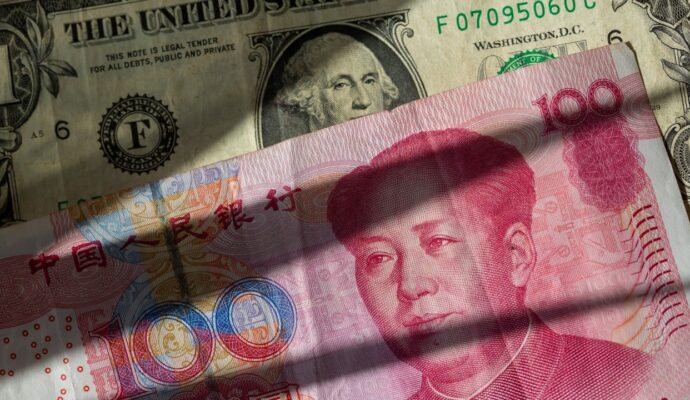Beijing will surely object to the statement and comments, as it has at previous Nato criticism. China has expressed anger over the presence of four Indo-Pacific countries at the alliance’s recent events.
Chinese officials have regularly accused Nato of “fanning the flames” of the war in Ukraine, and echoed Moscow’s claims that the bloc’s “eastward expansion” is to blame for the conflict.
But the invasion – which Beijing refuses to condemn – has only emboldened Nato, which is now ready to add Sweden as its 32nd member, after Turkey dropped its opposition to its accession on the summit’s eve.
It has also added impetus to Nato’s cooperation with the “Asia-Pacific 4” comprising Australia, Japan, New Zealand and South Korea, each having attended their second successive forum through a series of individual agreements that could open the door to more military interoperability and future joint exercises.
The AP4 have been stout supporters of Ukraine, and each has vowed in Vilnius to continue to provide assistance to Kyiv.
“Australia stands strongly with Ukraine. We regard this as a struggle about the international rule of law,” Prime Minister Anthony Albanese said before meeting Stoltenberg on Tuesday.
However, plans for a first bricks-and-mortar presence in Asia-Pacific went on life support amid fierce opposition from France, a key Nato member that has a history of opposing any pivot to Asia.
New Zealand Prime Minister Chris Hipkins (left) shakes hands with French President Emmanuel Macron on the sidelines of the Nato summit in Vilnius, Lithuania on Tuesday. Photo: AFP
Japan had hoped to announce a Nato liaison office in Tokyo, with its foreign minister, Yoshimasa Hayashi, saying in June that it was necessary because the world had “become more unstable” since Russia’s invasion of Ukraine.
But French President Emmanuel Macron nixed the plan last week, with his aides telling reporters that “Nato stands for North Atlantic”.
And on Tuesday, as negotiators thrashed out the final text of a joint statement, all references to the liaison office were scrubbed. Earlier drafts had pledged to continue discussions about a Nato presence in Japan, the very suggestion of which had drawn a furious response from Beijing.
“We want to say that the Asia-Pacific does not welcome group confrontation, does not welcome military confrontation,” foreign ministry spokeswoman Mao Ning previously said.
Diplomats involved in the talks who spoke on condition of anonymity said the office was sacrificed so that Nato could complete partnership agreements with Japan and South Korea.
These deals are seen as significantly more substantive than a one-person liaison office in Tokyo.
“France wanted it dropped from the communique in order to agree the partnerships elsewhere,” said one diplomat, adding that Paris would not agree to have both, “so we went for substance instead”.
Macron has spoken against a pivot towards China in previous Nato statements, but signed off on wording that tore into Beijing’s relationship with Russia, notably its failure to act constructively to end the war in Ukraine.

